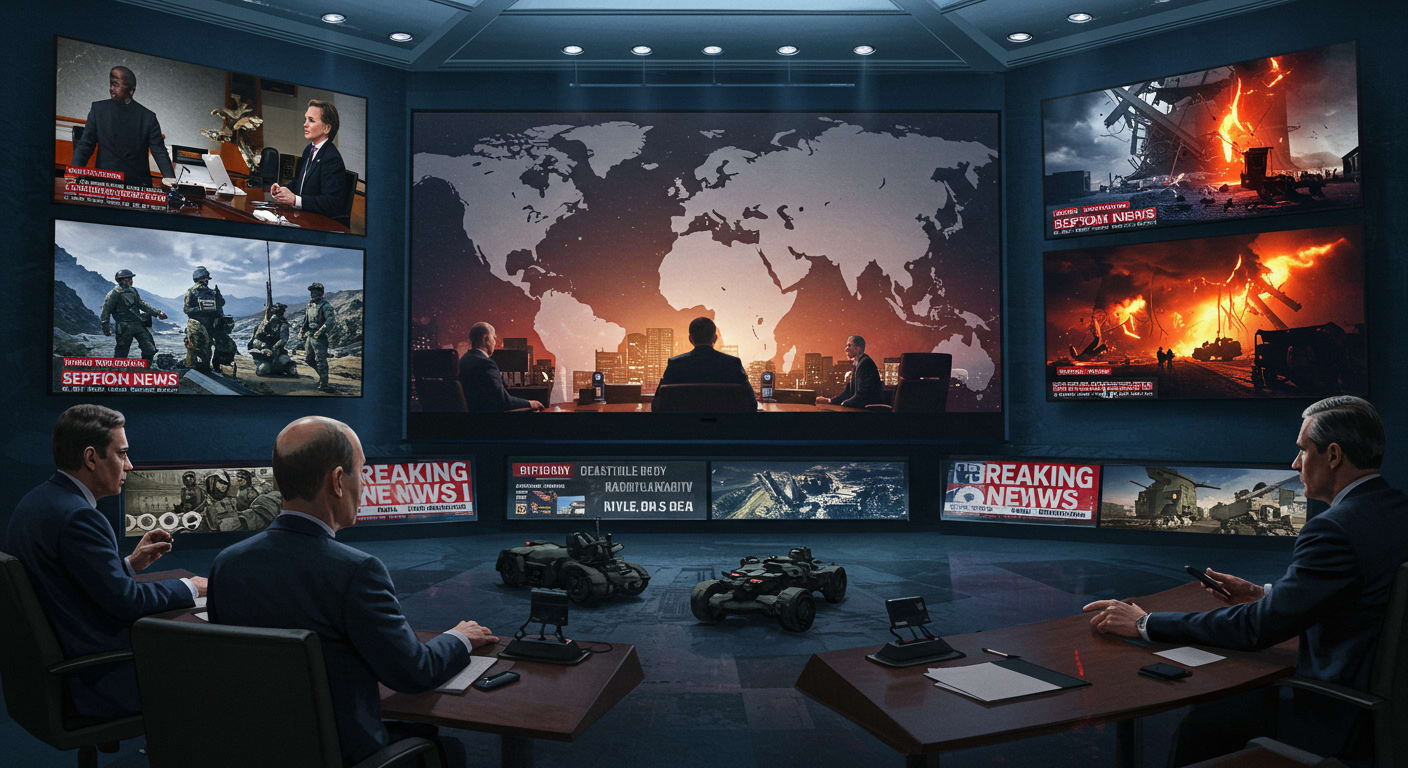September 11, 2025, marks a day of both reflection and current global concerns. While the world remembers the historical significance of 9/11, multiple geopolitical tensions and global incidents have dominated headlines, signaling rising international instability and urgent diplomatic challenges. From military escalations to natural disasters and international policy debates, these events demonstrate the interconnected nature of the modern world.
In this article, we provide a detailed overview of the key geopolitical conflicts and global incidents trending on this day, explaining their causes, potential consequences, and impact on international relations.
Rising Tensions in the Middle East
One of the major geopolitical flashpoints on September 11, 2025, is the Middle East. Countries in the region have been navigating a complex web of alliances, conflicts, and diplomatic maneuvers. Recent reports indicate:
Drone Strikes and Border Skirmishes: Certain nations have increased drone activity near contested borders, leading to heightened alert among military forces.Diplomatic Negotiations: Despite rising tensions, ongoing peace talks between conflicting parties show potential for compromise, although progress remains fragile.Energy Security: The region’s oil and gas exports continue to influence global energy markets, making stability critical for economic and political balance worldwide.
These events underscore the fragile equilibrium in the Middle East, where historical conflicts, resource control, and strategic alliances continuously influence global politics.
Eastern Europe and NATO’s Role
Eastern Europe continues to face geopolitical uncertainty. Tensions between NATO members and neighboring countries remain high due to:
Military Movements: Increased troop deployments along borders signal caution and preparedness for potential conflicts.Cybersecurity Threats: Governments have reported heightened cyber attacks targeting critical infrastructure, signaling the use of non-conventional warfare.Diplomatic Pressures: NATO continues to coordinate collective defense measures while urging diplomatic resolutions to avoid escalation.
These developments are not only regional concerns but have global implications, as Eastern European stability directly affects trade, security, and political alliances across the world.
Asia-Pacific Dynamics
The Asia-Pacific region has emerged as a hotspot for both geopolitical competition and strategic maneuvering:
Territorial Disputes: Nations are asserting control over disputed maritime zones, with increased naval activity and monitoring by international forces.Economic Strategies: Trade agreements, tariffs, and sanctions continue to shape the regional economy, impacting global supply chains.Diplomatic Engagements: Countries are participating in multilateral summits to negotiate security, trade, and environmental initiatives, balancing power dynamics carefully.
The interplay of economic growth, military assertiveness, and diplomacy in Asia-Pacific has a ripple effect, influencing global markets and international relations.
Global Incidents and Crises
Beyond geopolitical tensions, several global incidents have captured attention on September 11, 2025:
Natural Disasters: Earthquakes, storms, and other extreme weather events have affected communities worldwide, prompting humanitarian responses and emergency relief.Health Alerts: Localized outbreaks and health crises continue to demand global attention, highlighting the importance of coordinated medical and policy responses.Terrorism and Security Threats: International security agencies remain vigilant against potential terrorist activities, with preventive measures and intelligence sharing across borders.
These global incidents underscore the vulnerability of nations to unexpected events and the necessity of preparedness and international cooperation.
Impact on International Relations
The combination of geopolitical tensions and global incidents affects multiple areas of international relations:
Diplomacy: Countries are forced to balance confrontation and negotiation, weighing immediate security concerns against long-term alliances.Economy: Global markets react to tensions, conflicts, and crises, influencing trade, investment, and energy prices.Security Policies: Nations enhance defense strategies, cybersecurity, and intelligence sharing to address emerging threats.Humanitarian Concerns: Natural disasters and conflicts push governments and NGOs to respond rapidly, testing global coordination capabilities.
September 11, 2025, serves as a reminder that international stability is delicate, and world events are increasingly interconnected.
Public and Media Attention
The events of this day have dominated both traditional and digital media, with public interest reflecting concern over national security, human rights, and global stability. Social media platforms are abuzz with discussions about military actions, international policies, and disaster responses, reflecting widespread public engagement with these global issues.
Trending stories include debates on the effectiveness of diplomatic interventions, analysis of military escalations, and coverage of humanitarian crises, demonstrating how news consumption is shaped by urgency and relevance.
Conclusion
September 11, 2025, exemplifies the complexity of modern global events. Geopolitical tensions in the Middle East, Eastern Europe, and Asia-Pacific, coupled with natural disasters, health crises, and security threats, paint a picture of a world that is simultaneously interconnected and fragile.
Understanding these incidents helps governments, organizations, and the public make informed decisions and prepare for challenges that transcend borders. While reflection on historical events like 9/11 reminds us of past sacrifices, monitoring current geopolitical and global incidents highlights the ongoing need for vigilance, diplomacy, and global cooperation.
As international tensions rise and global incidents unfold, the importance of awareness, preparedness, and strategic engagement becomes ever more critical in maintaining stability and security across the world.
